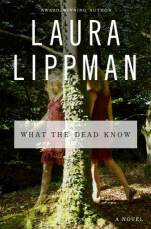



September 2026
1945
Now it can be told: I could barely muster a B average in the Medill School of Journalism. In fact, my major -- in a field where I would later go on to have a fairly successful career -- pulled down my grade-point-average, even as I was earning A's in my creative writing classes and taking advanced seminars in Chaucer and Byron. (And also doing pretty well in the "Film and Literature" courses team-taught by Stuart Kaminsky, which is how I started reading the Toby Peters novels.) Yes, in hindsight, I should have gotten a clue much earlier than I did.
I hated the Medill School of Journalism. There, I've said it. Well, not all of it. I hated most of the teachers, middle-aged white men who had worked, or were continuing to work, for the Chicago newspapers. I hated the style of instruction, an odd combination of lecture by anecdote and improv theater. Basic Writing, for example, was taught in Room 317 of Fisk Hall -- or was it 311? -- where we pounded away on rickety manual typewriters as the teacher pretended to be various individuals in a breaking news story. "I'm in the fire chief. Now I'm the lady across the street." I hated the incessant -- and gleeful -- reminders that the country's journalism schools were over-subscribed in the post-Watergate era, that most of us would never find jobs. I hated the instructor who commented on my weight, although I suppose that wasn't Medill's fault.
And, okay, I hated it because I sucked. Funny how that works. Loved Northwestern, hated Medill.
I do remember one teacher with great affection, Sallie Gaines, then a Chicago Tribune copy editor who treated her students with respect and empathy. And I liked one course, "The Law of Journalism," because it was well-suited to a classroom setting. Legal precedents lend themselves to academic study and libel law is a fascinating subject, with some of its seminal cases are rooted in the civil rights era. (New York Times v. Sullivan, the "hot news" defense of Associated Press v. Walker.)
But what I liked best was privacy law. In fact, "1945" was my mnemonic device for remembering the four constitutional amendments that are the basis for privacy law. I wrote my term paper on the lawsuit involving Jackie Onassis and Ron Galella, the photographer who pursued her. I was fascinated by issues such as "false light," in which plaintiffs could sue over flattering but nevertheless inaccurate portrayals. Long before the world knew Joe Eszterhaus as the author of Showgirls, I was familiar with him as the journalist at the center of a landmark false light case.
Lately, I've been thinking about privacy quite a bit. Because the fact is -- I'm a fairly private person. How can that be, given the way I natter on the Internet, blog about childhood memories and gab to the media? I would maintain that I am a gregarious and voluble person, but a private person nonetheless. As I told John Kenyon, my online persona has always been pretty calculated. The personal information on my own website is limited to the silly and sometimes outright false. I'll tell you anything about my work and sometimes that means sharing things about myself -- how I came up with the idea for What the Dead Know, for example, or the way my own high school experiences informed To the Power of Three. And if an interviewer wanted to know my favorite food or my idea of the perfect Sunday -- ah, shades of Hot Fuzz! -- I've played along, something I now regret, along with this.
Perhaps this is a long-winded way to say that, as of this month, my bio has been deleted from this site. Go to Wikipedia if you need to know more about me; best I can tell, there's only one error (the spelling of my mother's name -- oh, and the continuing confusion, started by my carelessness here, that "Ropa Vieja" is a novel.) The bio was essentially false, anyway. Factual, but false, a silly, superficial document that sought only to entertain superficially. Perhaps I'm closing the barn door after the horse is long gone, but hey -- it's drafty in here.

